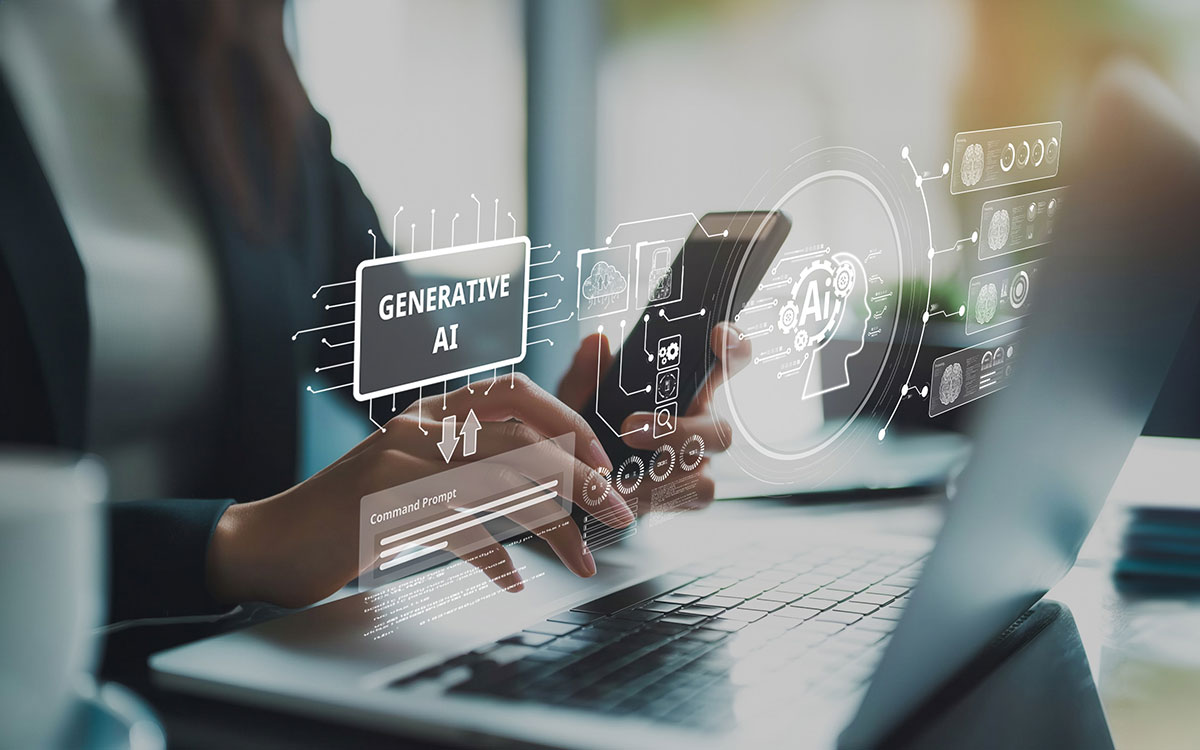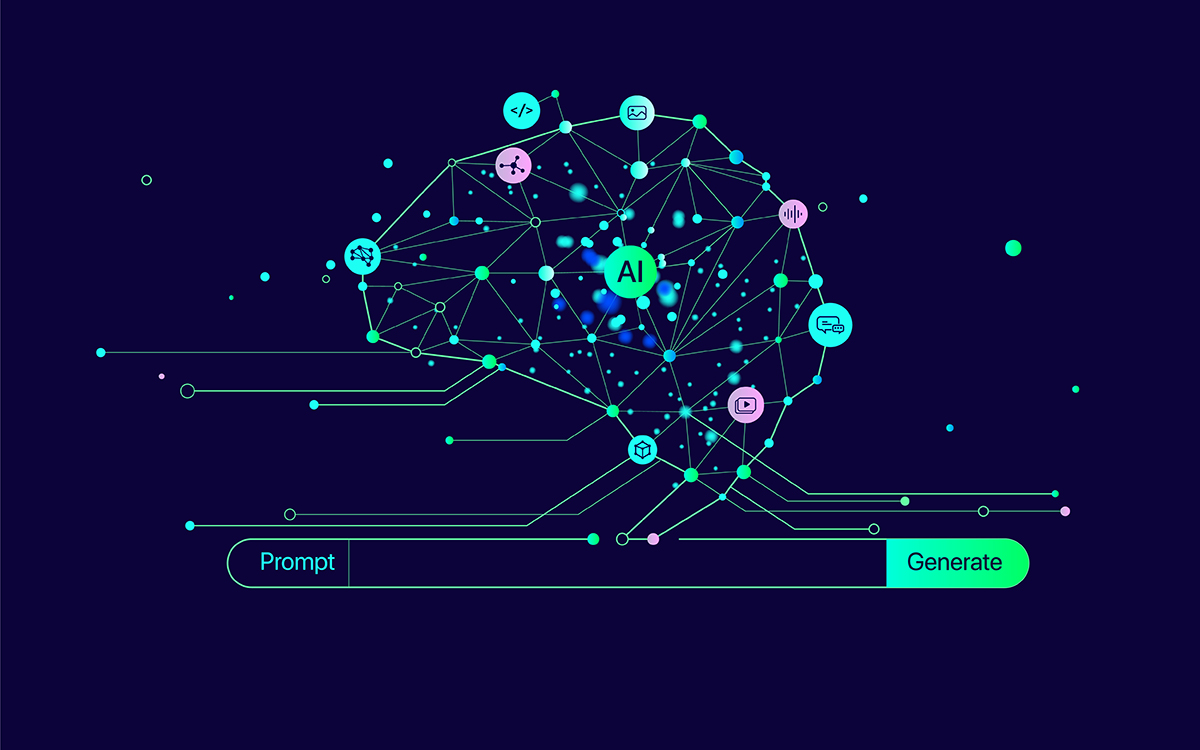
Adaptive AI: Unlocking Benefits and Overcoming Challenges

Artificial intelligence (AI) has evolved significantly, and one of its notable advancements is the concept of adaptive AI, also known as dynamic learning or continual learning AI. In contrast to traditional AI, otherwise called static AI, that relies on pre-defined rules and data to make decisions, adaptive AI requires the creation of algorithms that can learn and adapt to new situations in the environment and data over time. Making the list as one of Gartner’s top 10 strategic technology trends for 2023, the prediction is that by 2026, enterprises adopting adaptive AI will outperform their counterparts by 25%. By exploring the benefits and challenges associated with adaptive AI, we’ll gain a comprehensive understanding of its potential.
5 Benefits of Adaptive AI
Improved Accuracy:
By continuously learning from new data and refining its decision-making process, adaptive AI is efficient at improving accuracy. As the system adapts and updates itself with real-time information, it can make more precise predictions, identify patterns, and deliver more accurate results. This enhanced accuracy has wide-ranging implications across industries, from healthcare diagnostics to financial forecasting, enabling organizations to make more informed decisions and provide better services.
Personalization:
One of the key advantages of adaptive AI is its ability to personalize experiences for users. By learning from user preferences, behaviors, and past interactions, adaptive AI can tailor recommendations, content, and services to individual users. This personalization enhances user satisfaction, engagement, and loyalty. Adaptive AI algorithms can suggest relevant products, curate personalized news feeds, and provide customized user interfaces, delivering a tailored experience that resonates with individual users.
Scalability:
An advantage of adaptive AI systems is the ability to continually adapt to changing business needs and successfully handle large volumes of data. Organizations can leverage the power of big data analytics because even with the growth of data volumes, adaptive AI can efficiently process and analyze this data. Adaptive AI systems can dynamically scale their resources to meet demand, ensuring that performance remains optimal even during peak usage. This scalability enables organizations to efficiently process vast amounts of data and respond effectively to evolving business requirements.
Real-Time Decision Making:
With its ability to make real-time decisions based on current data, adaptive AI significantly enhances efficiency and reduces errors. By continuously analyzing incoming data streams, adaptive AI systems can identify patterns, detect anomalies, and respond swiftly to changing conditions. The capability to make real-time decisions is particularly valuable in time-sensitive areas like fraud detection and cybersecurity, where taking immediate action is often critical.
Reduced Maintenance Costs:
Unlike traditional AI systems that normally require manual updates and adjustments to adapt to new conditions, adaptive AI’s ability to automatically adjust to changes in data and the environment can result in reduced maintenance costs. Adaptive AI’s capacity to learn and adapt on its own diminishes the need for extensive manual intervention and ongoing maintenance. This automated adaptability saves time and minimizes the resources and costs associated with manually retraining models and fine-tuning parameters.
Five Challenges of Adaptive AI
Data Quality:
The accuracy and effectiveness of adaptive AI relies on the quality of the data it receives. If the data used for training is of poor quality or contains biases, the decision-making process can be compromised. To maintain data integrity and prevent misleading outcomes, organizations must ensure they have robust data collection, cleansing, and validation processes in place.
Training Time:
Organizations need to allocate sufficient resources and give careful consideration to the time required for adaptive AI systems to reach optimal performance. Significant training and resources are needed for Adaptive AI to learn from new data and adapt to new situations. Notably, when in relation to large and complex datasets, the magnitude and intricacy of the learning process can be prolonged.
Bias:
Bias is a crucial challenge in adaptive AI systems. If training data is biased or if representation of various groups is not sufficient, the adaptive AI may perpetuate or amplify biases. From data collection to algorithmic design and validation, conscientious observation is necessary to ensure fairness and mitigate bias throughout the AI development process.
Interpretability:
Adaptive AI algorithms can be complex, making them challenging to interpret, resulting in difficulty understanding decisions. Lack of interpretability raises concerns, particularly in high-stakes domains where explanations for decisions are necessary, such as healthcare or finance. Researchers and practitioners are actively exploring techniques for explainable AI to address this challenge and enhance transparency.
Security:
With its reliance on data, adaptive AI is vulnerable to security risks. When an AI model is compromised, attackers can gain access to data and manipulate the system. The data can then produce inconsistencies and exhibit skewed results. Protecting adaptive AI systems requires robust security measures, including encryption, access controls, and monitoring, to safeguard both the data and the integrity of the AI models.
Adaptive AI: Driving Future Innovation
Adaptive AI offers significant benefits in terms of improved accuracy, personalization, scalability, real-time decision making, and reduced maintenance costs. However, challenges related to data quality, training time, bias, interpretability, and security must be addressed so as to fully recognize the benefits and reap their rewards.
To reduce challenges, organizations need access to high-quality data, must be willing to invest in training and monitoring of the AI model, and be willing to implement security measures to protect their systems. Confronting challenges, organizations can take the reins and exploit the advantages of adaptive AI. It has the potential to revolutionize industries, drive innovation, and propel society into a future where intelligent systems adapt and continuously learn to deliver better outcomes for businesses and individuals alike.
Apexon delivers advanced analytics, allowing for greater business insights. Because digitization has made data analytics a growing priority for executives today, a deeper understanding of data can enable businesses to realize the benefits of adaptive AI more quickly. Check out Apexon’s Data Analytics and AI/ML services or get in touch with us directly using the form below.
This blog was cowritten by Suvodip Chatterjee and Harshavardhan Parvatikar
Also read : Why Vector Databases Matter in Designing AI-Enabled Solutions
Also read: EV Charging Infrastructure Startups: Navigating Challenges and Unlocking Opportunities




